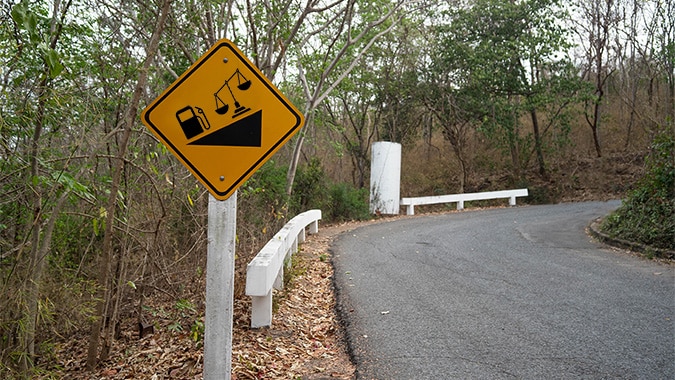New York Gov. Kathy Hochul signed a law last week that will force fossil fuel companies to pay $75 billion in damages over 25 years for their unspecified role in climate change.
And New Jersey Senators John McKeon (D-27) and Bob Smith (D-17) are currently supporting similar legislation here.
But what certainly awaits both states and a few others considering the so-called Climate Superfund Act are legal challenges about the constitutionality of such laws.
This week, the U.S. Chamber of Commerce and the American Petroleum Institute filed a federal lawsuit against the state of Vermont, which was the first and only other state to enact a climate Superfund law – even though it didn’t have a signature from the governor and despite the fact the state does not produce or refine fossil fuels.
NJBIA Deputy Chief Government Affairs Officer Ray Cantor said such laws will be subject to strong legal scrutiny based on a myriad of reasons.
“There is so much to legitimately legally challenge with these laws or bills you almost don’t know where to start,” Cantor said.
“Each state’s case has, or will have, unique circumstances. But what’s important to remember is that for all the ideological grandstanding or costly cash grabs that are attempted, the validity of these laws will come down to the courts. And they will have a long way to go to pass legal muster.”
FUEL TO THE LEGAL FIRE
In testimony opposing bill S-3545, Cantor summarized several reasons why a Climate Superfund Act is unfair to fossil fuel companies and harmful to consumers.
For starters, the legislation seeks to impose a retroactive assessment on companies that have provided a legal, necessary, and vital product to the citizens of the state, Cantor said.
He also said it unfairly imposes retroactive liability on companies that were acting completely within the law and were doing so to promote state and federal policies, for the benefit of the citizens of this state.
“How do you retroactively penalize companies that were, and are, providing a legal product needed for both our survival and our prosperity,” Cantor said.
“Beyond the fact that the courts generally disfavor the retroactive application of laws, especially when such application would be punitive, you don’t need a law degree to know that everything about modern society, from life expectancy to the food we eat, the clothes we wear, and the cars we drive, are dependent on fossil fuels.
“In fact, most of the energy being consumed in the country right now is from fossil fuels. Our own Energy Master Plan, our tax systems, and our entire economy is structured on the availability and use of fossil fuels.”
Cantor also noted in his testimony that the bill assumes damages from the use of fossil fuels to the State of New Jersey, without support of specific scientific evidence – let alone definitive data showing what impact a state business has or had on a global phenomenon like climate change.
“This bill is premised on the belief that the extraction and refining of fossil fuels, due to the emission of greenhouse gases, has had a deleterious effect on public health, the environment, and the economy,” Cantor said.
“While we agree that greenhouse gas emissions may warm the planet to a minor degree, and this has had and will have certain impacts on the planet, we disagree with the premise of the bill that these impacts are substantial and compensable.”
Cantor also noted in his testimony that in the most recent Assessment Report from the Intergovernmental Panel on Climate Change (IPCC) that the science did not support that extreme weather events, such as hurricanes and floods, are attributable to greenhouse gas emissions.
NJ WATCHES
Cantor said it’s a safe bet that New Jersey, as well as states like California, Massachusetts and Maryland that are considering similar bills, will keep a close eye on the Vermont lawsuit and the expected litigation in New York.
In the Vermont case filed this week, plaintiffs contended the law is preempted by the Clean Air Act because “state regulation of greenhouse gases is only permissible as authorized” by the federal law.
They said the Vermont law also violates the Constitution by discriminating against the economic interests of other states by “targeting large energy companies located outside of Vermont,” according to the complaint.
Further, API and the US Chamber argued in their brief that Vermont was duplicating attempts for monetary and injunctive relief – as the state had sued ExxonMobil and other large energy companies over alleged climate change deception in 2021.
That litigation is still pending.
Meanwhile, in New Jersey, bill S-3545 has thus far passed the Senate Environment and Energy Committee.
“The bottom line is there will be no shortage of ways to legally contest these state laws,” Cantor said. “What we know now is these laws will not do anything to reduce climate change and the extra costs burdening these businesses will undoubtedly be passed on to customers.
“Recent elections have highlighted the impact of inflation and general affordability has had on consumers. This bill would further drive up the cost of everything, from the cost of gasoline to the food we eat.”




